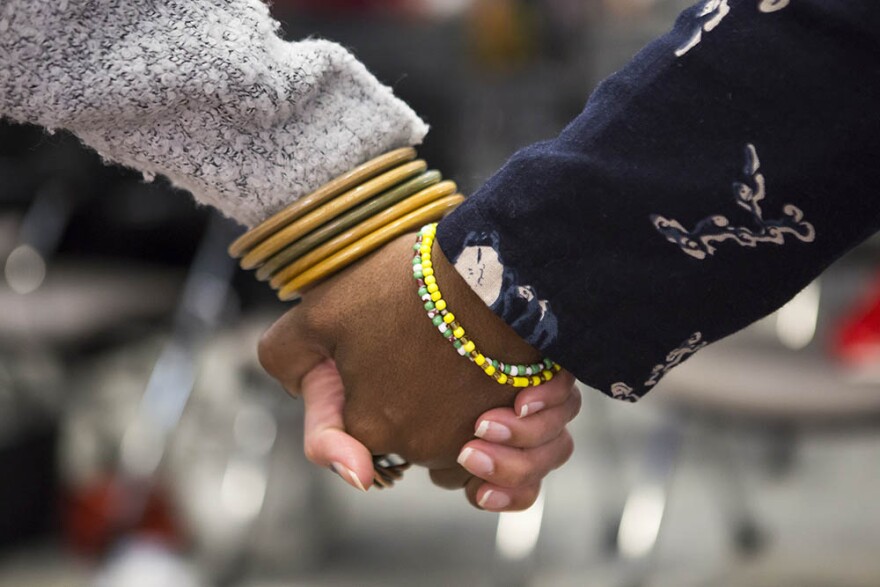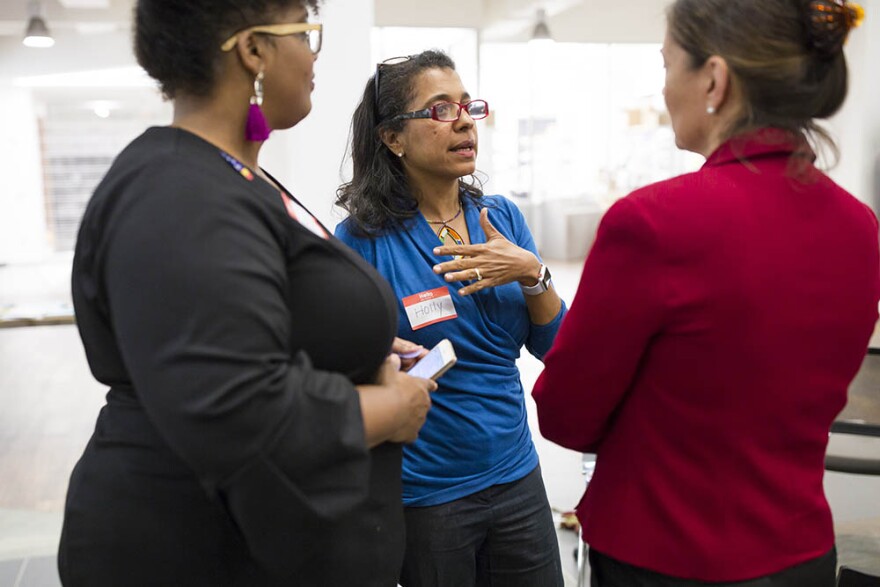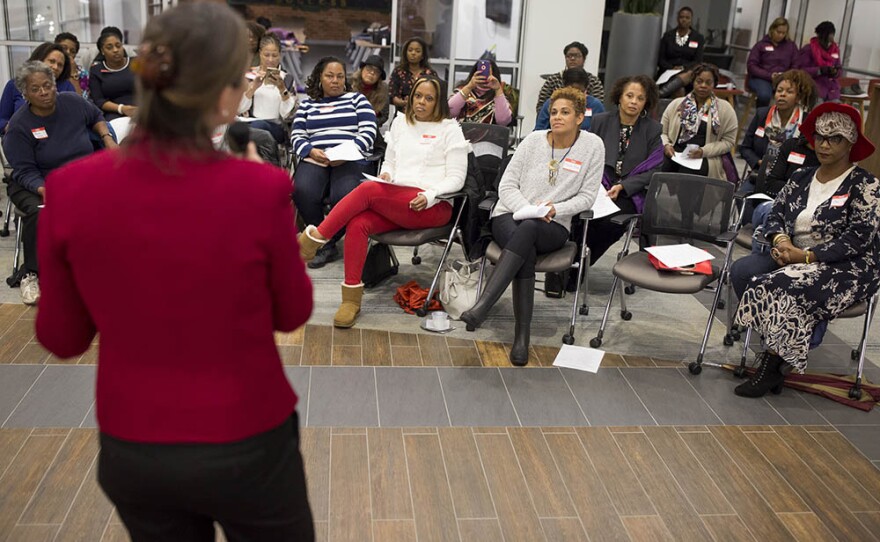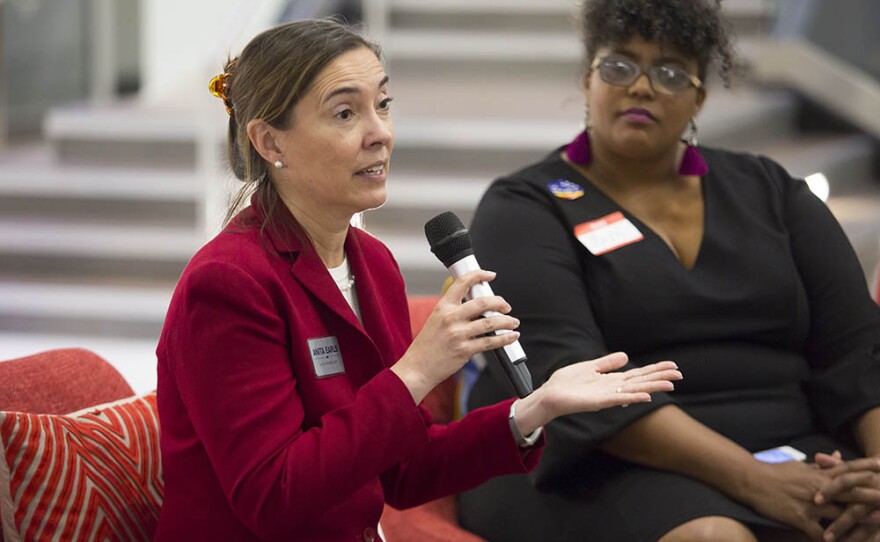In downtown Durham, a group of African-American women spent a recent Friday night at a Sister to Sister salon conversation, talking politics, polling and power. Attorney Mavis Gragg helped organize the event and said it was long overdue.
“To talk about what’s going on with black women, what’s going on with the elections, what can we do, how we can continue to uplift our candidates and change what’s going on in our country,” said Gragg.
From the door-to-door canvassing to the “get out the vote” phone calls, women have been described as the backbone of campaign politics. And African-American women are among those mobilizing across the country.
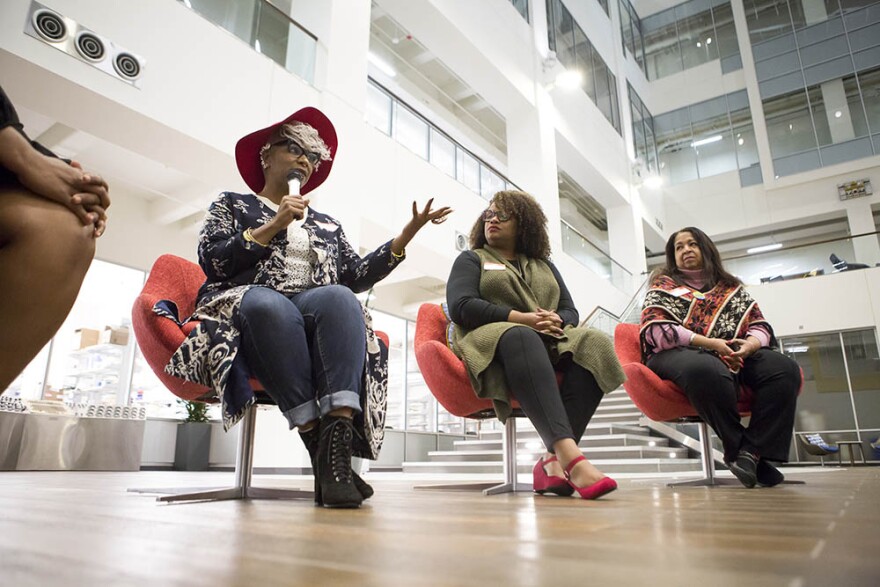
There have been more than 30 Sister to Sister salons across North Carolina in the past month. Exit polls from CNN and the New York Times have shown African-American women vote mostly Democratic. And that was especially effective in the presidential races electing Barack Obama in 2008 and 2012.
In the 2016 election, African-American numbers were down nationwide. Still, 94 percent of black women voters supported Hillary Clinton. But a year later, 98 percent of black women voters supported Doug Jones of Alabama, a white male, for the U.S. Senate, who won the race.
One of the special guests at the Durham Sister to Sister salon was Anita Earls, the Democratic candidate for the North Carolina Supreme Court.
“I wanted to be a lawyer from a very young age, and I was just really fortunate to be the first one in my family to graduate from college, be able to go to law school,” said Earls, whose father is black and mother is white. "I think that there are many people who experience the criminal justice system not serving them well. I just felt compelled to do more."
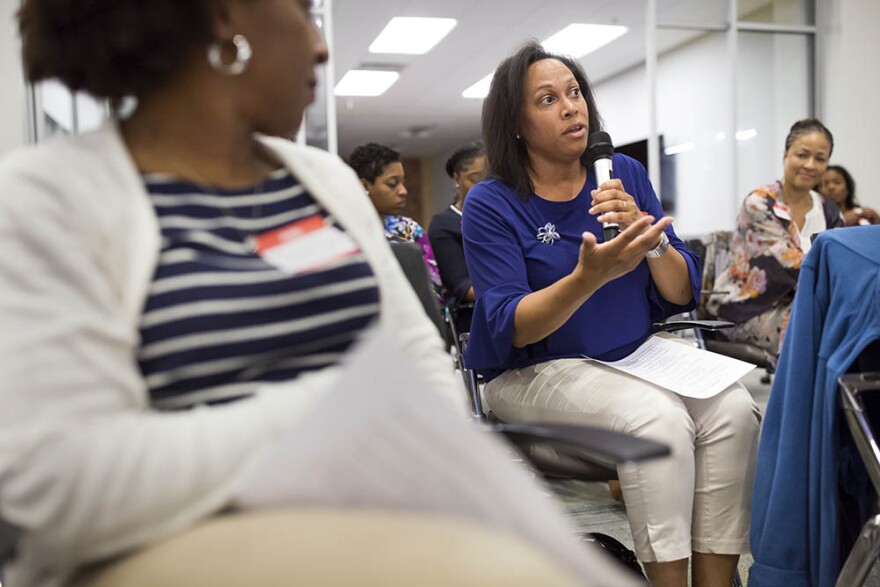
For many of the African-American women in the audience, this was the first time meeting Earls. And it almost didn’t matter: a show of hands revealed most of the women had already voted early.
Natalie Murdock drove from Greensboro for the event. She works for an organization called “Higher Heights,” a non-profit with a mission to mobilize black women and lead them to take political action. You couldn’t miss Murdock. The front of her black t-shirt read, “#BlackWomenVote.”
“We vote. And it’s time for us to not only vote, but to run for office, to make sure that the issues we care about are on the agenda," said Murdock. "We can’t simply be used for our vote and then forgotten. We have to be at the front of that conversation.”
Momentum is growing. North Carolina is one of several states where early voting this mid-term has outpaced early voting in 2014.
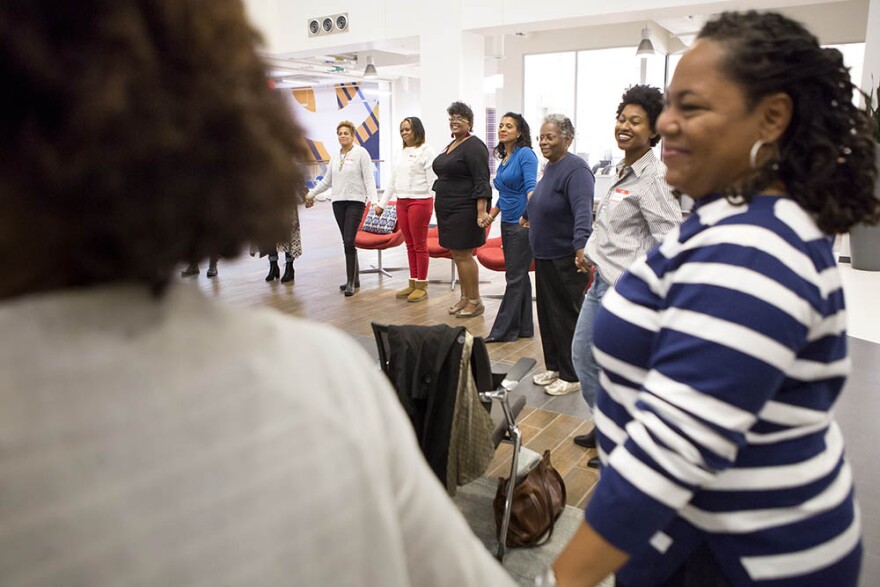
David McLennan is a political science professor at Meredith College in Raleigh and author of the report, “The Status of Women in North Carolina Politics.” McLennan said overall voter turnout in the state was 44.3 percent in 2014. For African-American women, turnout was 46.4 percent.
"So they are doing better than just the average voter in North Carolina," said McLennan. "History tells us a lot. It’s a community that has been active in politics. It’s not that many decades ago when African-American voters were denied access to the polls and once those barriers came down it became very much a part of their voting history.”
The women at this salon were very aware of that history and the country's current racially-polarized climate. During the salon, women were asked to harness the strength of the African-American women in their lives. The nearly 40 women held hands in a large circle, each reciting the first affirmation that came to mind.
“Black women are beautiful," said one woman.
"Black women are supportive," said another.
"Black women are fearless."
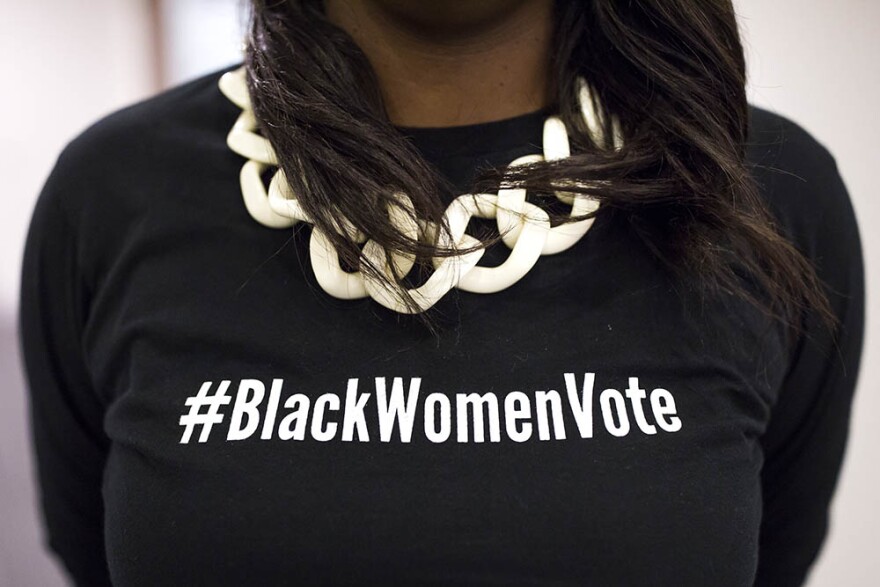
When it was Omisade Burney-Scott's turn to speak, she said, "Black women rise again and again."
As women collected election flyers, fans and buttons, Burney-Scott, a community voluteer and activist, said this election season, her mind and heart are with the people of New Bern who are still displaced after Hurricane Florence. She wants them to vote, too.
“We do our political education in the midst of providing support, but we don’t hit people over the head with it. It’s a dance," said Burney-Scott.
And it’s a dance she’s prepared to teach others in order to get them to the polls.
ADDITIONAL PHOTOS:
